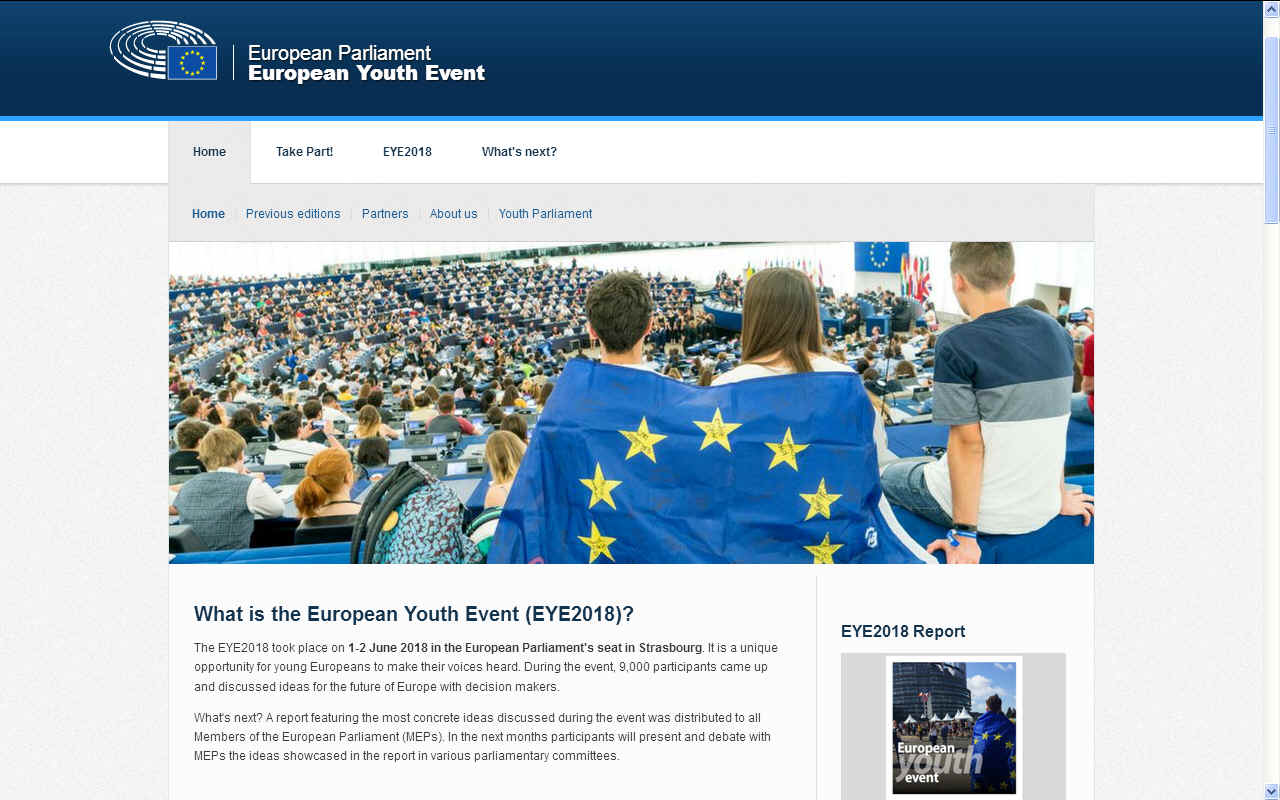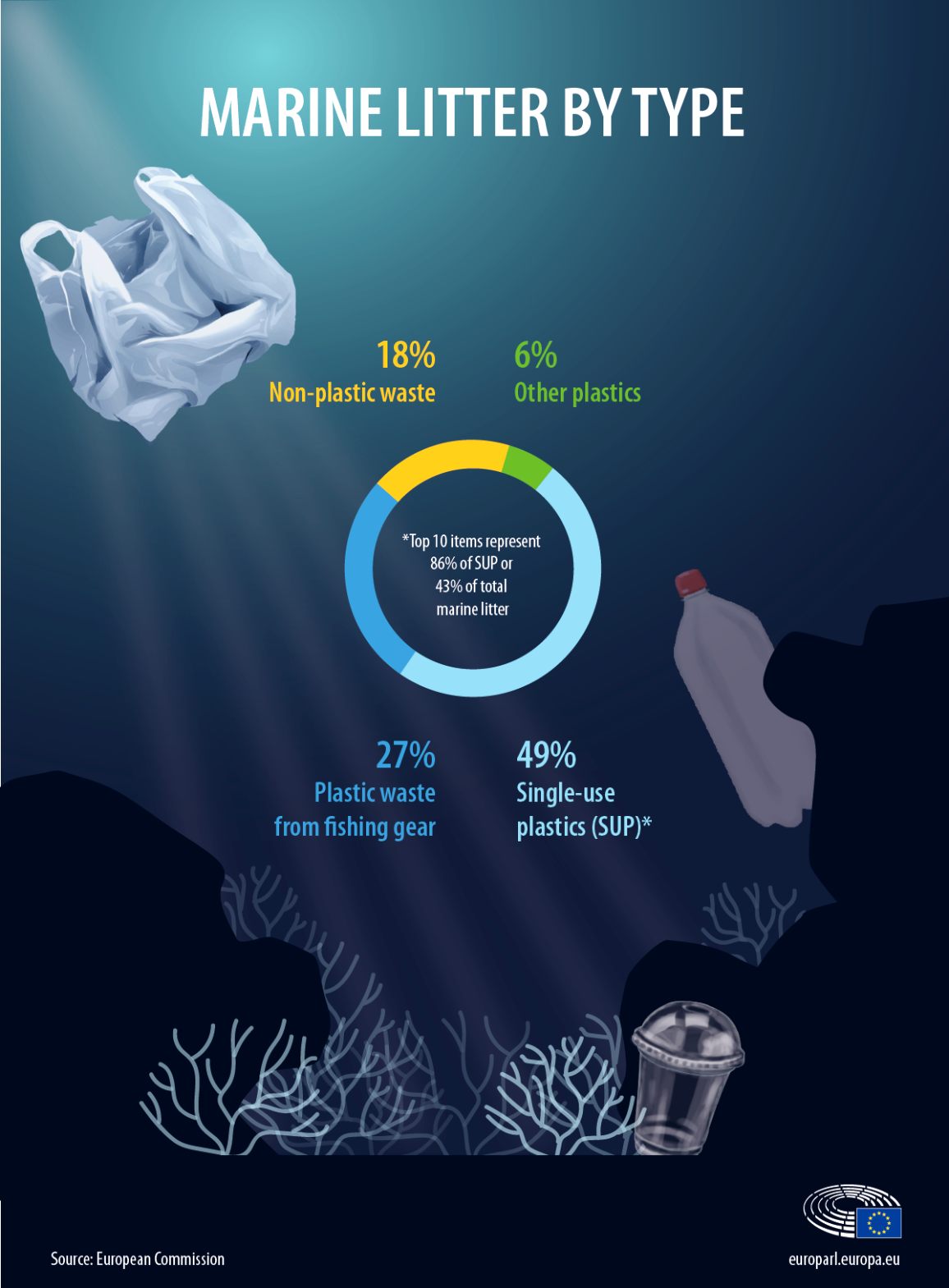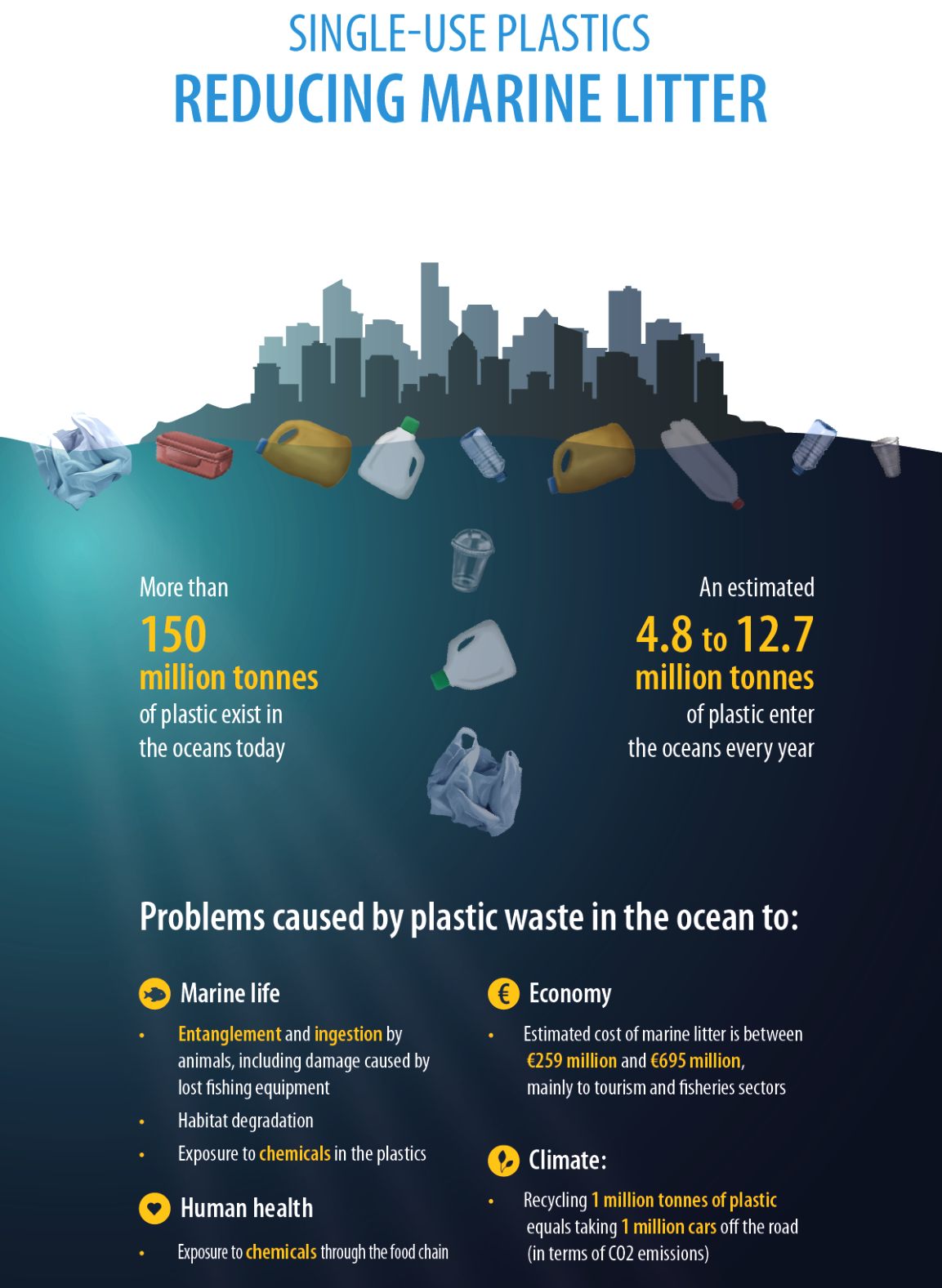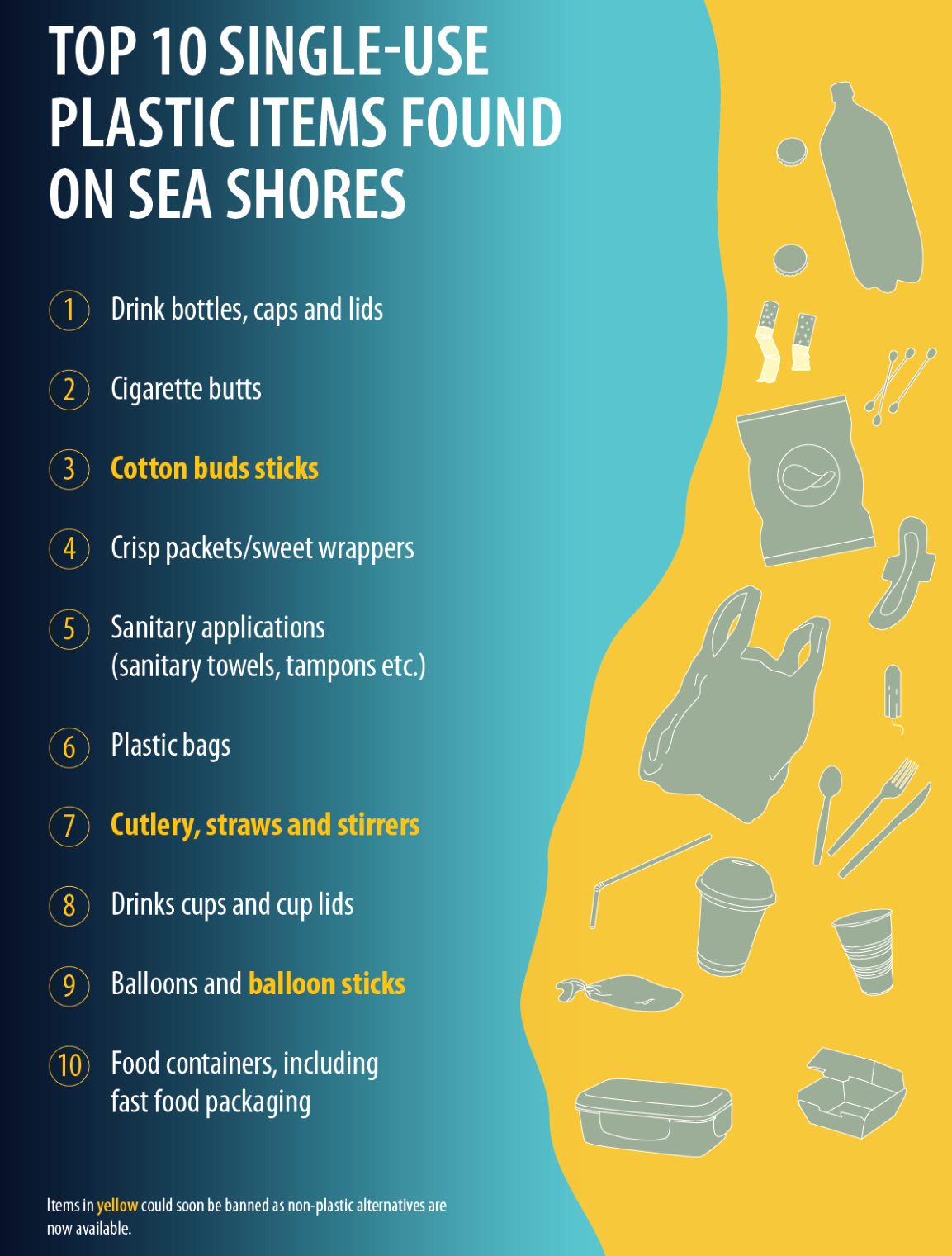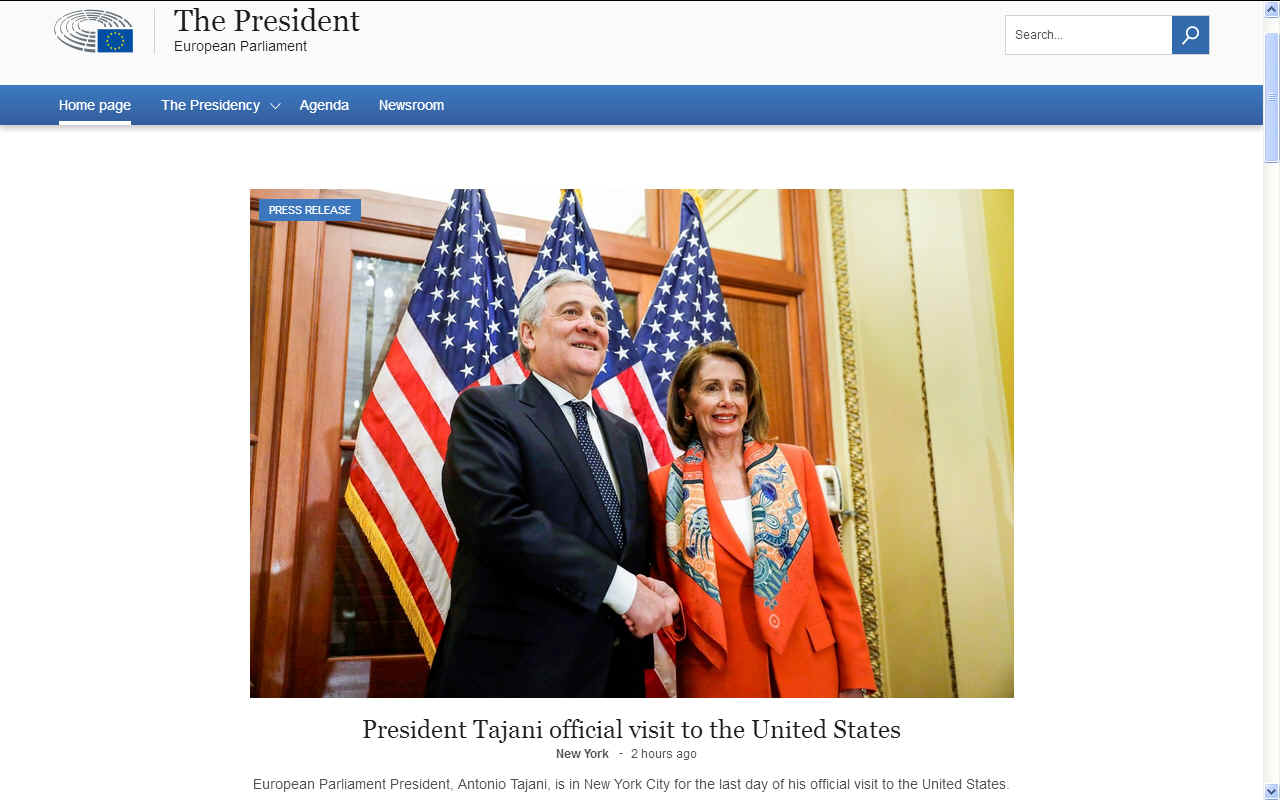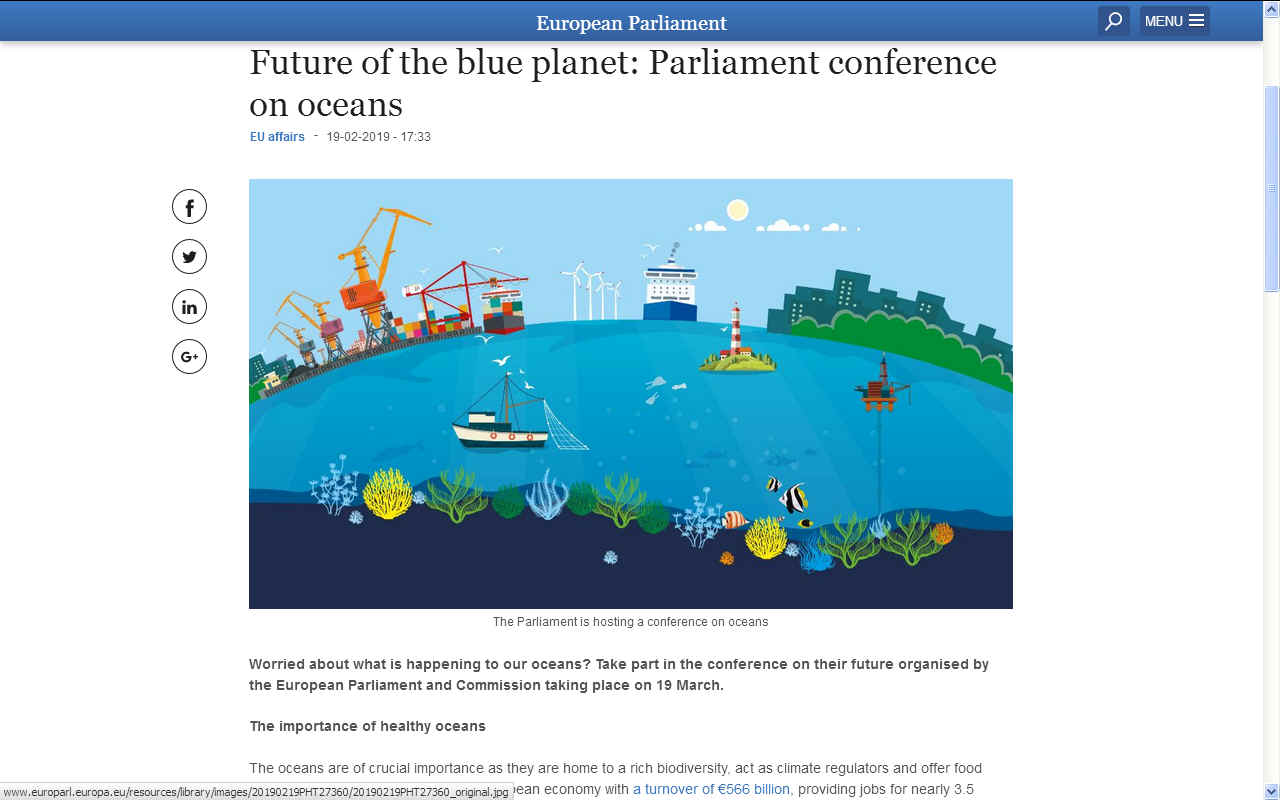|
EUROPEAN PARLIAMENT YOUTH EVENT
ABOUT - CONTACTS - CROWDFUNDING - DONATE - FOUNDATION - HOME - A-Z INDEX
The European Parliament is made up of 751 Members elected in the 28 Member States of the enlarged European Union. Since 1979 MEPs have been elected by direct universal suffrage for a five-year period.
What is the European Youth Event (EYE2018) ?
The EYE2018 took place on 1-2 June 2018 in the European Parliament's seat in Strasbourg. It is a unique opportunity for young Europeans to make their voices heard. During the event, 9,000 participants came up and discussed ideas for the future of Europe with decision makers.
What is the European Union doing about it?
Although oceans are essential to us in many ways, the state of marine biodiversity remains little known.
What we do know, however, is that human activities create a number of pressures such as
(over-) exploitation, carbon emissions, and pollution, including marine litter. The
European Union (EU) has been active in promoting the
sustainable use of the seas. In early 2018, the European Commission presented a strategy to address the issue of
plastics
pollution, including microplastics in our seas.
Oceans provide essential benefits, not only environmentally, in terms of unique and beautiful natural
Yet our knowledge about oceans, especially on the state of marine biodiversity, remains limited. We still
We do know, however, that oceans are impacted by past and present human activities. The situation is
Other pressures include climate change (affecting sea surface temperature); coastal eutrophication;
It is estimated that there are over 150 million tonnes of plastic in the world's seas and that, without significant action, there may be more plastic than fish (by weight) in the sea by 2050. Some marine litter consists of microplastics; these originate from the breaking down of larger plastic pieces or are released directly into the environment. Directly released microplastics come mostly from the laundering of synthetic textiles (35 %) and the abrasion of tyres while driving (28 %), while microplastics in personal care products account for 2 %.
What is the European Union doing about it?
A common European policy on
fisheries was first introduced in the 1970s and went through successive
In 2013, the common fisheries policy was given a new direction. In particular, it requires the exploitation of fish stocks to be based on the maximum sustainable yield, by 2020 at the latest. Also, in order to put an end to the practice of discarding unwanted catches at sea, all catches of species subject to catch limits or, in the Mediterranean, to rules on size, now have to be landed. On the issue of plastics, the European Commission presented a strategy in early 2018, which aims to tackle sources of marine litter and microplastics.
There are signs of improvements in a number of cases: in the Baltic Sea, the state of predators such as grey seals and white-tailed sea eagles has been improving over recent decades. The number of over-exploited fish stocks in the North-East Atlantic has been steadily decreasing, and encouraging trends have been observed for estuary fish diversity, as well as for the health of seabird colonies in areas that are now protected from species such as rats.
Antonio Tajani
- President of the European Parliament
1995 COP
1,
BERLIN, GERMANY
LINKS & REFERENCE
http://www.europarl.europa.eu/the-president/en/ www.europarl.europa.eu/european-youth-event/en/home/home.html https://www.europarl.europa.eu/committees/en/envi/home.html
This website is provided on a free basis as a public information service. Copyright © Cleaner Oceans Foundation Ltd (COFL) (Company No: 4674774) 2019. Solar Studios, BN271RF, United Kingdom. COFL is a charity without share capital.
|
